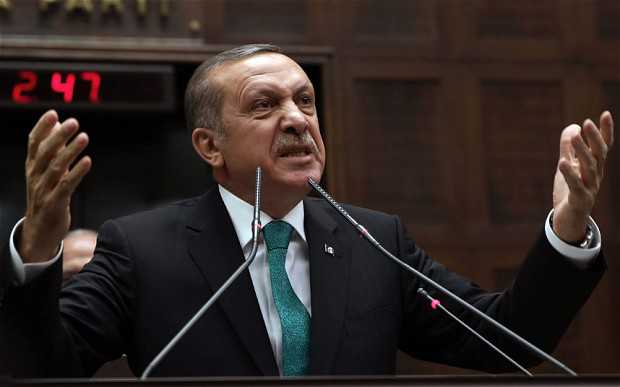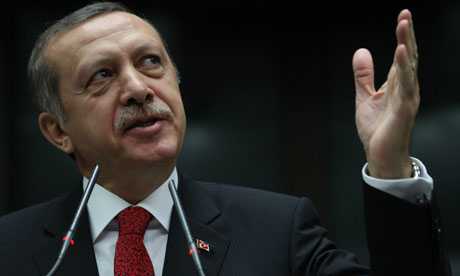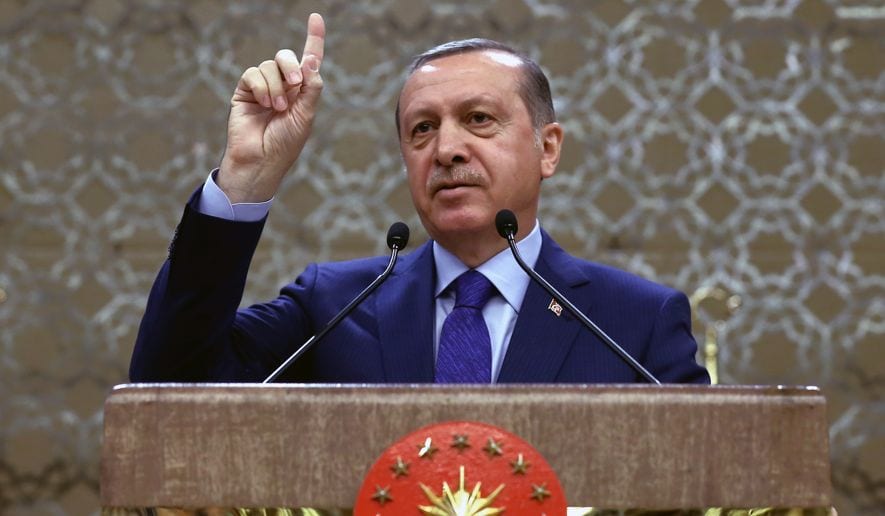Gaza ceasefire too fragile to acclaim end of warfare
DEBKAfile Exclusive Analysis 24 Jan.: Israeli leaders insist the IDF left Hamas seriously crippled – which is undeniable; but the second half of the proposition that Hamas had “lost its appetite for striking Israel targets for a very long time” – is over-optimistic, give the considerations listed here:
1. Hamas is in no state to reach a clear decision because its leadership is divided on this very issue.
The Gazan faction headed by prime minister Ismail Haniya would accept Egypt’s proposals for shelving armed warfare for now and healing the quarrel the Palestinian Authority chairman, Mahmoud Abbas, whereas Hamas’ Damascus faction led by Khaled Meshaal rejects any terms but the unconditional reopening of Gaza’s crossing and an end to its blockade.
2. Jerusalem is beholden to Cairo as the first major Arab power to support a battle with an Arab force, and was thus bound to respect its wishes to teach Hamas – and Iran – a harsh lesson but stop short of finally crushing the Palestinian extremists.
3. Until last week, Egypt enjoyed solid Saudi backing. But then, at the Arab League summit in Kuwait on Jan. 19, the Saudi king changed face and decided to appease the Iran-led radical Arab camp.
4. American and Egypt mechanisms to staunch Hamas’ access to smuggled Iranian and Syrian arms are still tentative.
This and the divisions in the Arab world have encouraged Tehran to persist in rearming Hamas and the Hamas-Damascus faction to maintain its intransigent posture, a contest which crackles with inflammatory potential.
Egypt cracks the whip for Hamas in long-term truce talks
DEBKAfile Exclusive Report 25 Jan.: Egyptian intelligence minster Gen. Omar Suleiman gave Hamas no leeway when its delegation began long-term truce talks for Gaza in Cairo Sunday, Jan. 25. Accept our terms, he said or take your chances on a new Israel government after the Feb. 10 general election.
Here are the conditions Cairo put before the Palestinian Islamist organization:
1. Hamas must pledge to halt all smuggling into the Gaza Strip, including arms.
2. and 3. It must accept a long-term truce for Gaza and a half-kilometer off limits zone behind the border…
4. Hamas would have no access to the Gaza crossing facilities.
5. The verbal abuse of Egypt must stop forthwith.
Suleiman made it clear that financial aid for rebuilding the Gaza Strip was contingent on Hamas burying the hatchet with Mahmoud Abbas and accepting a power-sharing deal with his Palestinian Authority.
Iranian arms ship intercepted by US warship has sealed double holds
DEBKAfile Exclusive Report 25 Jan.: The Iranian ship boarded by a US Navy Coast Guard team on the Red Sea last week before it could smuggle arms to Hamas is now disclosed by DEBKAfile’s military sources to have tried to trick the searchers by enclosing its rocket cargo in secret compartments behind layers of steel.
The Iranian freighter Nochegorsk was intercepted in the Bab al-Mandeb Straits last week by the new US Combined Task Force 151. The Americans decided not to give the Israeli Navy a chance to seize the vessel and tow it to Eilat for fear of a Tehran ultimatum to Jerusalem sparking Iranian attacks on Israeli naval craft patrolling the Gulf of Aden and Red Sea.
Iran maintains two warships in those waters as well as a military presence in the Eritrean port of Assab.
The US and Egyptian governments are in a fix. To break the Iranian ship’s holds open and expose the rockets destined for Hamas, the facilities of a sizeable port are needed. It would have to be Egyptian because the other coastal nations – Eritrea, Sudan and Somalia – are hostile or controlled by pirates.
And the US and Egypt are hesitant about precipitating a full-blown armed confrontation with Iran. The new Barack Obama administration is rather set on smoothing tiesTehran through diplomatic engagement.
The option of towing it to a Persian Gulf port would be opposed by the Gulf emirates hosting US bases.
Moreover, Tehran would be close enough to mount a naval commando operation to scuttle the ship before it was searched. Therefore, the US government is expected to let the Iranian arms ship sail through the Suez Canal out to the Mediterranean for lack of other options.
Two Guantanamo inmates on al Qaeda video25 Jan.: The two men reaffirmed their dedication to jihad on a video posted in an al Qaeda website shortly after President Barack Obama signed a directive to close the Guantanamo Bay prison camp in Cuba within a year. One was a Saudi identified as Saeed Shihri, one of al Qaeda’s top leaders in Yemen.
DEBKAfile adds: He was transferred to Saudi Arabia in 2007. Against a pledge not to revert to terrorism, Shahri won a big Saudi grant for his “rehabilitation.” He did indeed build a big house and take a wife, but on the quiet resumed his affiliation with al Qaeda.
The second man on the video, Abu al-Hareth Muhammed al-Oufi, is an al Qaeda field commander. Another 245 prisoners await their release in the camp. According to the US Defense Department, as many as 61 former Guantanamo Bay detainees, about 11 percent of 520 inmates transferred or released so far, have rejoined al Qaeda’s active ranks.
Hamas wartime rockets missed US anti-Iranian missile radar near Beersheba
DEBKA-Net-Weekly Exclusive 26 Jan.: Following orders from Tehran, the Palestinian Hamas used the cover of the 22-day Gaza conflict to aim rockets at the American Forward-Based X-band Transportable (FBX-T) anti-missile radar system lodged at Israel’s big Nevatim air base east of Beersheba, DEBKA-Net-Weekly disclosed lat week.
Destruction of the FBX-T, which was installed last November to intercept incoming Iranian Shehab-3 ballistic missiles, would have crowned Hamas’ offensive with success. But they missed.
Cont. Next Column
|
Our military sources reveal that the American X-band radar, which can track the path of any missile fired in the Middle East, worked hard during Operation Cast Lead, feeding the Israeli command with accurate advance information on the missiles and rockets aimed from Gaza at southern Israel and their trajectories.
It also tracked the rockets fired twice at Nahariya and Kiryat Shemona from Lebanon and kept watch for possible missile action from Syria and Iran.
But the American radar facility at Nevatim also kept Washington abreast of Israel’s aerial, naval and missile activity in the course of the conflict.
Major Israeli reprisal pending for Palestinian roadside bomb which killed Israeli soldier 27 Jan.: An Israeli soldier was killed and three others injured, one seriously, Tuesday, Jan. 27, by a large roadside bomb detonated from Gaza against a routine Israeli military patrol near the Kissufim crossing.
Eight hours later, an Israeli air strike killed a Hamas operative involved in the attack riding a motorbike near Khan Younis. Defense minister Ehud Barak warned Israel would respond to the Palestinians’ unacceptable breach of the ceasefire.
Our sources say Hamas initiated the clash for the benefit of US president Barack Obama’s Middle East envoy George Mitchell the day before he arrives for his first visit to the region. The time-lag between the Palestinian attack and Israel’s response exposes Jerusalem’s commitment to consult with Washington and Cairo before taking further action in Gaza. The understandings with the US, reached by Israel’s war troika, the prime minister, defense minister and foreign minister Tzipi Livni, are proving now too ungainly and unclear to fit the realities of Gaza. They tie Israel down for launching the necessary response for stamping hard on Hamas’ war initiatives.
Hamas is determined to belie Israel’s claim of restored deterrence strength from Operation Cast Lead and assertion that Hamas would need a very long time to revert to violence.
US military chief confirms interception of Gaza-bound Iranian arms ship28 Jan.: Chairman of the US Joint Chiefs of Staff Adm, Mike Mullen said Jan. 28 the US Navy had intercepted a Cypriot-flagged ship in the Red Sea last week and searched it with the captain’s permission for Iranian arms bound for the Gaza Strip.
The Iranian arms ship on its way to the Gaza Strip for Hamas was first revealed exclusively by DEBKAfile on Jan. 20 and tracked further on Jan. 23 and Jan. 25.
The Navy had done all it could do legally but was not authorized to seize the weapons,” said Mullen, adding he would like authority to act in such cases.
DEBKAfile’s military sources disclose that it is bound for Latakia, where it will dock alongside the Russian guided missile destroyer Admiral Chabanenko.
In the Suez Canal, the Iranian vessel’s captain called Tehran for instructions and was told to proceed to this Syrian port. Upon entering the Mediterranean on Jan. 26, the Iranian ship was blocked by Israel missile ships from access to the shores of Gaza.
Israeli air force bombs Philadelphi corridor in three waves 28 Jan.: Israeli towns and communities within rocket and missile range of the Gaza Strip were once again on tense alert after the Israeli air force struck the Philadelphi corridor border tunnels before dawn Wednesday, Jan. 28. Punishment was promised Hamas after a large roadside bomb blew up an Israel border patrol jeep outside Gaza early Tuesday, killing one Israel soldier and injuring three, one seriously, one week into the Gaza ceasefire.
Several smuggling tunnels caved in under the aerial bombardment. Barack Obama’s Middle East envoy George Mitchell may find himself landing Wednesday in the middle of another Gaza war.
Two Qassam missiles aimed at Sderot early Thursday shatter ceasefire 29 Jan.: Israeli air raids struck a Hamas target in Khan Younes, inflicting at least 10 Palestinian casualties Thursday, Jan. 29, after two missiles were aimed at Sderot from Gaza early Thursday, Jan. 29.
Overnight, the Israeli Air force struck a missile workshop in the southern Gaza town of Rafah.
DEBKAfile’s military circles report that in the 48 hours since a roadside bomb from Gaza killed an Israeli soldier and injured three, Hamas has reverted to its tit-for-tat cycle in an effort to demonstrate who makes the rules.
I n expectation of a major Gaza flare-up, defense minister Ehud Barak canceled his trip this week to Washington for talks with US defense secretary Robert Gates. Wednesday, as Barack Obama’s Middle East envoy George Mitchell met with Israeli leaders in Jerusalem, Hamas fired two Qassam missiles and several mortar rounds into southern Israel for the first time since the 22-day conflict was halted by ceasefires.
In Damascus, meanwhile Hamas and other radical Palestinian leaders rejected Cairo’s plan for a long-term truce, demanding the reopening of all the Gaza crossings first.
But Hamas’ rejection has taken Cairo’s diplomatic initiative back to square one. The Egyptians believe that a good military hiding by Israel will bring the Palestinian Islamist extremists back to the negotiation table in a more reasonable frame of mind.
Turkish premier storms out of Davos after run-in with Israeli president
29 Jan.: At the World Economic Forum in Davos, Turkish prime minister Recep Tayyip Erdogan Thursday, Jan. 29, reproached Israeli president Shimon Peres over the Gaza offensive, saying “You kill people,” continuing the abuse he has leveled against Israel in recent weeks.
Israeli president Shimon Peres said, raising his voice, Israel’s 22-day offensive was launched in reaction to eight years of rocket fire. Turning to Erdogan, who had said Israel had made Gaza an “open air prison,” Peres asked: “Why did they fire rockets? There was no siege against Gaza. There was never a day of starvation in Gaza.”
The former Norwegian prime minister, Khell Magne Bondevik, said he had never seen Shimon Peres so passionate. I think he felt Israel was being attacked by so many in the international community. He felt isolated.”
|






